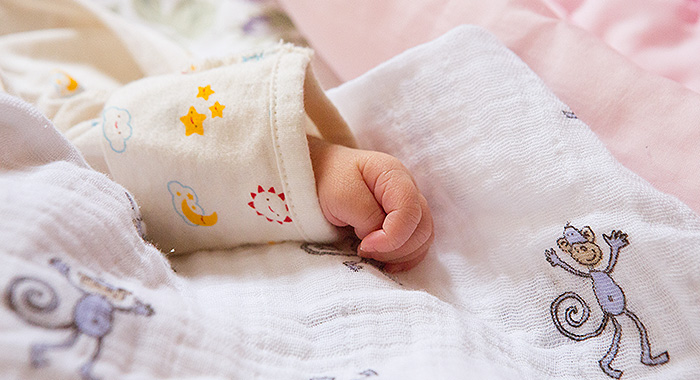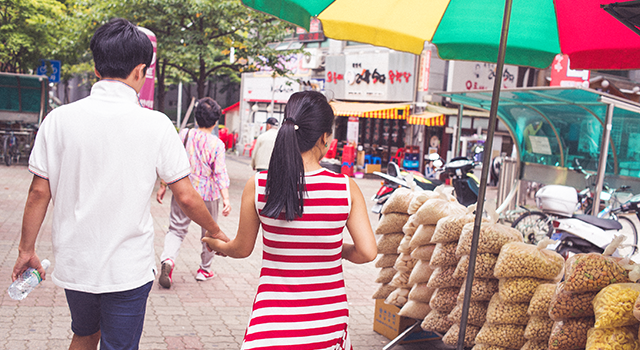Creating home: An Interview with our U.S. Resettlement Assistance Manager

While the majority of the North Koreans who come through our rescue network wish to resettle in South Korea, a small group choose to come to the United States. Drawn by family, friends, and new opportunities, they resettle all across the country. Because resettlement to the U.S. comes with its own set of unique challenges—mainly the language barrier—we have programs specially designed to help North Koreans find their footing in their first few years. Our U.S. resettlement manager Kris explains the details of the resettlement process and her work with LiNK in more detail.

Describe a normal day at your job.
What’s cool about my job is that no work day is the same. From helping a North Korean register for school to purchasing bikes for a family (both are things I have done very recently), every day is different. I travel quite often to visit refugees and to meet with partner organizations. I also spend a lot of time researching government and community benefits, changes in immigration laws, and educational resources. I will say that the two services I provide almost every day are translation and interpretation.

What do you enjoy most about your job?
The North Korean friends we work with are pretty awesome. It really is my privilege to be able to work with such an amazing group of people. I get to help them but I also learn so much. My job never gets boring. They challenge me to do more and be better. My colleagues at LiNK are pretty cool, too. =)
What is the most difficult part about your job? What was most surprising about the work you do?
The number of North Korean refugees who have resettled in the US is pretty small so people tend to put them in one group and form generalized opinions about them. But what I learned over the years and what some people might find surprising is that each person is so unique in their backgrounds, family dynamics, worldviews, reasons for defection, life goals and dreams. It’s challenging to be able to assess and meet their differing needs and help them reach not only self-sufficiency but also the eventual self-actualization and fulfillment. But I’m proud of the individualized and flexible case management that we have been able to offer to the people we serve. As we expand our work, I hope we will continue to have capacity to offer individualized care.

What are some of the challenges that our North Korean friends face as they resettle here in the US?
There are so many. Most common ones would be language and cultural barriers. Access to transportation is a huge challenge because although many states offer driver’s license exams in Korean, there are some that don’t, so the refugees have to learn English first in order to take the driver’s license exam. Some of the more recent and regionally-specific challenges are lack of affordable housing and immediate employment opportunities.

What are some of the challenges in running a North Korean refugee post-resettlement program here in the United States?
The fact that the people we work with are scattered all over the country makes it difficult to do anything in-person. Geography has always been the biggest challenge for me because I’d love for us to be more accessible to the refugees and do more in-person programs with them. Most refugee agencies serve local communities because it’s difficult to be a direct service provider from afar. We have to be creative to stay connected to the people we serve. One good thing that the pandemic did was normalizing virtual communication, and we were able to successfully execute an entrepreneurship program and a mentorship program virtually during the pandemic.
What was one of your most memorable events in this role?
Not long after one of our clients died in a car accident, I flew out to see her minor children. I knew that no words would bring comfort to them at that point. I took them out to see a movie and we went to get our nails done. Of course, we got some boba afterwards. Then per their request, we went out to a hot pot restaurant for dinner, and there we ran into some people from their church. The people assured me that the children will be taken care of and the community will be there for them. I went out there to bring some comfort for the children, but instead, I was the one that was comforted more than anyone. It’s just one of those days that I’ll always remember.

What is something you wish the world knew about North Korea or the North Korean people?
Maybe I can just say something about the North Korean refugees, rather than the entire country of North Korea or the North Korean people inside the country. North Korean refugees, in their defection and resettlement process, have gone through so many unimaginable obstacles and have overcome them with such incredible resilience and determination. I believe that they have this amazing potential to overcome any barriers and to succeed in their new life. I hope the whole world understands this and welcomes the refugees with open arms.
Life in Freedom: A Conversation with Brian

For many years, Brian lived a charmed life in North Korea. He had a loving family, a university education, and a full stomach, but everything changed when the government stopped providing rations and wages for work. To make extra money, Brian's father began working as a broker, helping desperate North Koreans escape to China.
When his father was outed in a newspaper for helping a high profile defector escape, the entire family was put in danger. Brian's parents immediately fled to China. He followed soon thereafter, but was captured upon arrival by Chinese police. He spent the next two weeks in a detention center in China, where he was routinely beaten. Thankfully, LiNK was able to pay for his release so he could avoid repatriation.
Since resettling in South Korea, Brian's been very busy. He began attending university shortly after he arrived, hoping to become a journalist in the future so he can write about North Korea for an international audience. This year, he got married to another North Korean defector and they're now expecting their first child.
Our resettlement coordinator Jihyun was able to catch up with Brian recently to talk about what his life has been like since resettling.

Jihyun: What is the best thing that happened to you this week?
Brian: My pregnant wife and I found out that we are having a daughter! Yeah, we are so happy!I felt so bad watching my wife going through morning sickness. She couldn’t eat properly until recently.
Jihyun: So did you not eat when she couldn’t eat because you felt so bad for her?
Brian: Oh, no. I still ate well, because...you know, I was hungry. Haha.
Jihyun: Oh yeah, I understand. Of course you had to eat well so you could protect and take good care of her when she couldn’t eat. (Brian, his wife, and the photographer laugh.)

Jihyun: What was the most difficult thing when you got out of Hanawon (resettlement center for North Korean defectors)?
Brian: When I first graduated from Hanawon, I still had a thick North Korean accent so people looked at me whenever I started talking, which made me so uncomfortable.
Jihyun: What was your biggest challenge in North Korea? What's your biggest challenge in South Korea?
Brian: In North Korea I didn’t have a lot of difficulty because I was lucky to have a well-off family there. In fact, after I came to South Korea I started having a lot of difficulties because I had to adjust to the new society.
I think getting a job is one of the most difficult challenges for many resettled North Korean refugees. Especially since I am about to graduate from college and have a wife and a baby coming, I feel a little pressure. I just want more South Korean companies to hire more resettled North Koreans without discrimination/stereotype. I have heard from many of my North Korean friends that they have a hard time getting jobs because many companies have negative stereotypes about North Korean people, so they don’t want to hire North Korean candidates.
I am not saying that they have to hire us because we are from North Korea, but I want more companies to willingly hire us if we are qualified regardless of our background.
Also, I believe North Korean defectors in South Korea are still underprivileged in society and have a lot of obstacles. I hope there will be more effective job training and employment programs until more resettled North Koreans settle down in their specific work fields.

Jihyun: What is it like living in freedom in South Korea?
Brian: I really appreciate the freedom that I have here. In some of my college classes, I got to study the South Korean constitution that guarantees our freedom. There are so many types of freedom that I can enjoy. I can’t even count them because there are so many. One thing is the freedom of traveling anywhere I want. Back in North Korea, even traveling to another area was so difficult. Here, as long as I don’t cause trouble or break the law, no one can take away my freedom of movement.

Jihyun: Have you helped any other defectors resettle in South Korea? How?
Brian: Well, I wish I could do more, but right now what I can do is to help other resettled North Korean refugees who want to go to college by sharing my experience and giving them useful tips and advice about college life.
Jihyun: Have your perceptions of Americans and South Koreans changed?
Brian: In North Korea I didn’t really think South Koreans were very different than us because I thought we were all Koreans—the same blood. However, my perception of Americans changed a lot especially after I met LiNK staff and learned about LiNK's supporters.
I used to think Americans were so weird and selfish, because that was how I was taught about Americans in North Korea.
When I was caught by the Chinese police in China, LiNK helped me so much to be released and come to South Korea. I was so moved by that.

Jihyun: What advice would you give to a friend who just arrived in South Korea?
Brian: I want to share everything I have learned with him. I would say to him that he has to do what he wants. There are many options that you can choose for what you are going to do in this new society. If you don’t want to regret your decision in the future, you have to do what you like.

Jihyun: How often do you think about North Korea? What do you think about?
Brian: Not quite often, but I start thinking about North Korea when I am stressed out about my studies or finding a job, because I didn’t really worry about those kinds of things back in North Korea. When I am thinking of North Korea, I usually picture hanging out with my friends there. We played a lot of games, including card games. Also I liked drinking with my good friends too, haha.
Lastly I want to take this chance to say thanks to LiNK staff, volunteers, and supporters. I always appreciate them and thinking about them gives a lot of hope and motivation to do my best for my life.




